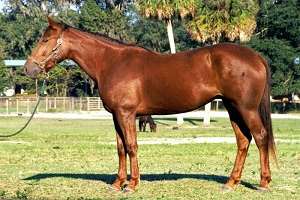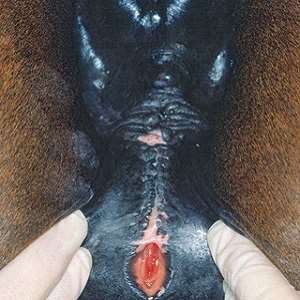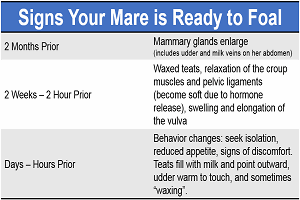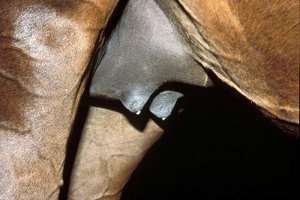
Vaccinate
Mares should be vaccinated four to six weeks prior to EFD. There is no transfer of immunity from mare to foal during pregnancy. Foals must consume high quality colostrum within the first 24 hours of life to receive protective antibodies into their bloodstream. Your goal is to boost immunity during the time the mare is producing colostrum in order to enhance colostrum quality at foaling. This is accomplished by vaccinating your mare a month before EFD for all core vaccines, and any diseases endemic to your area or farm. Transfer of immunity through colostrum will provide the foal with protection for 4-5 months. Work with your veterinarian to plan the vaccination program appropriate for your area. Note that EHV1 (Rhino) can cause abortions in late pregnancy so EHV1 vaccine should be given during months 5, 7 and 9 of pregnancy. AAEP Vaccination Guidelines
Deworm
Utilize an effective dewormer on the schedule you have worked out with your veterinarian throughout pregnancy, and when the mare is showing signs of approaching delivery. Egg shedding in parasites is extremely high during the spring months of foaling. Deworming very close to foaling can prevent threadworms from being passed in the mare’s milk, and gives the foal a great start.
AAEP Parasite Control Guidelines
Open Caslicks
Open caslicks at least 30 days before EFD. This is usually done by your veterinarian. If a Caslick’s procedure was done on your mare in the previous breeding season and you fail to open the mare’s vulva, the mare will most certainly tear during delivery. Check the vulva frequently after opening because it can heal closed again or become infected.

Foaling Supplies
Check your inventory of foaling supplies and order items that will be needed at foaling or during breeding. If critical need items like frozen colostrum, IgG kits, or tetanus antitoxin are not on hand, they should be readily obtainable. Mares are notorious for delivering when you least expect it.


Source: ufl.edu